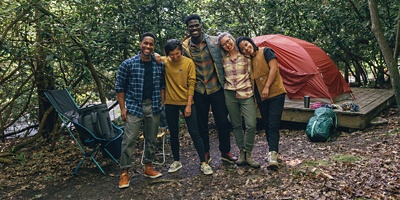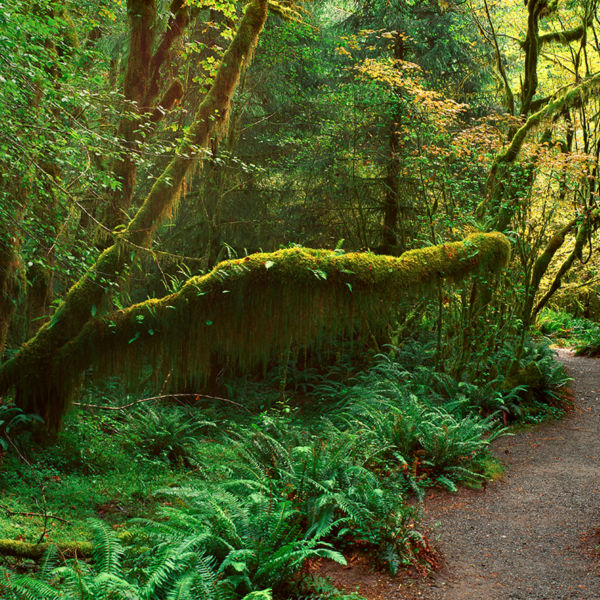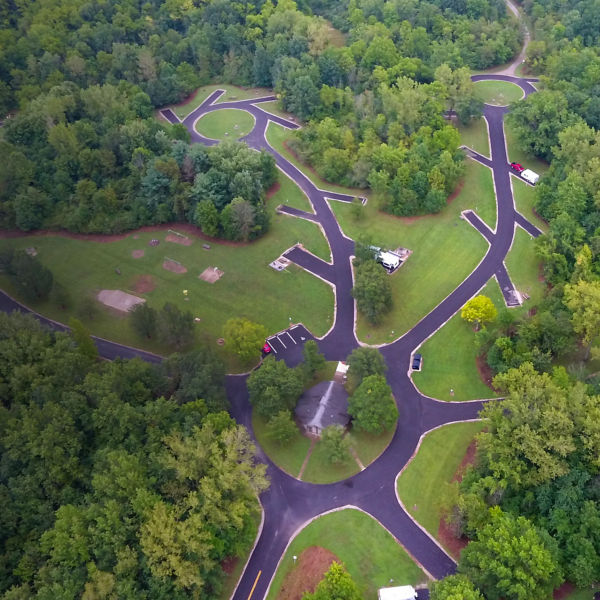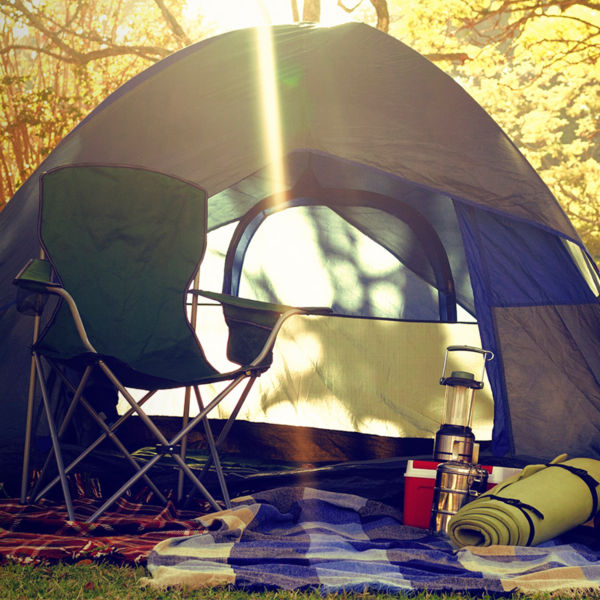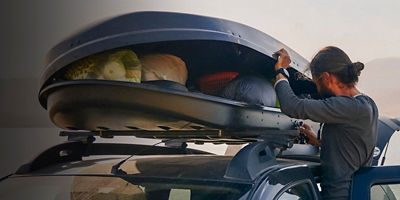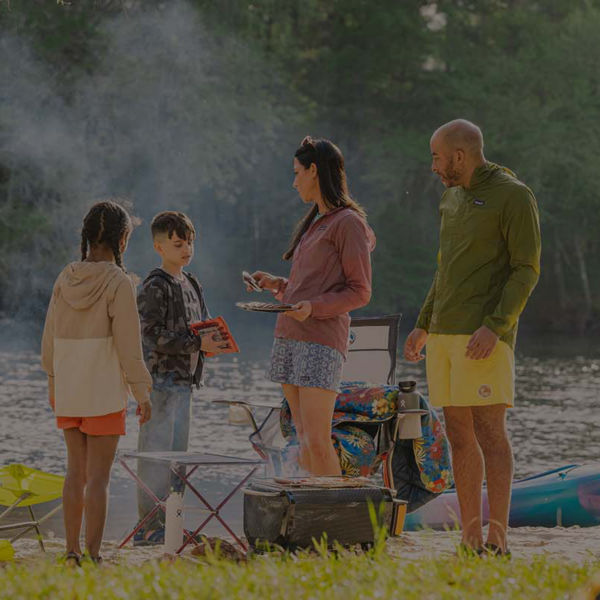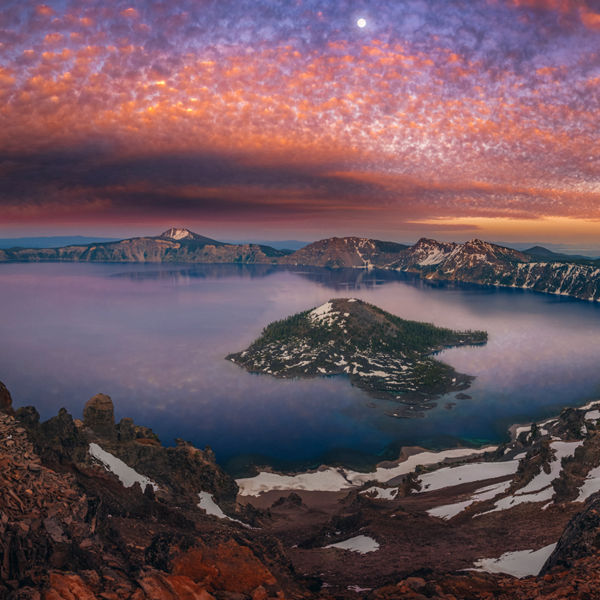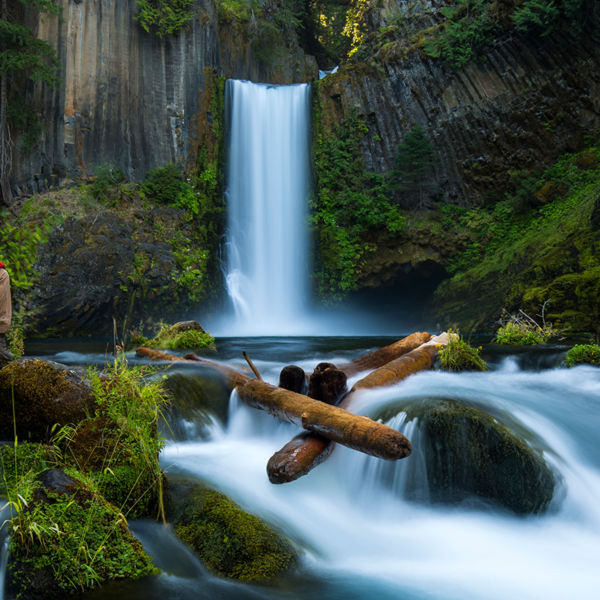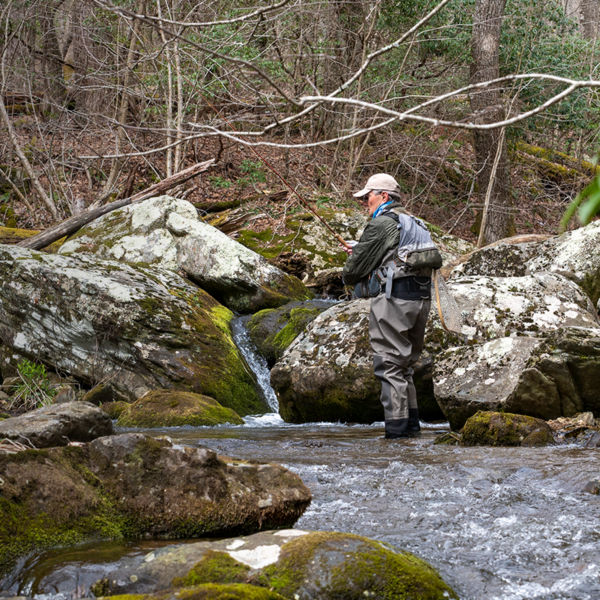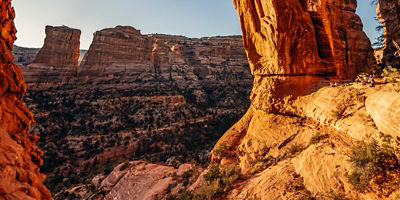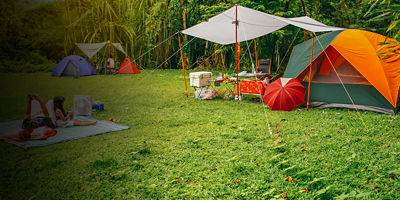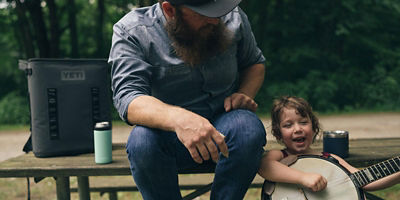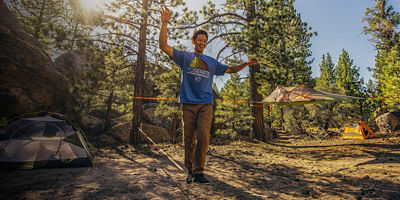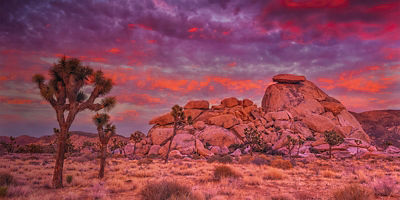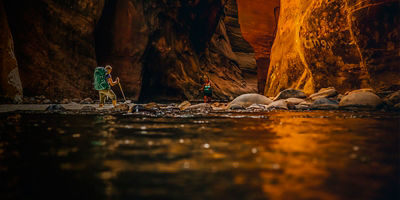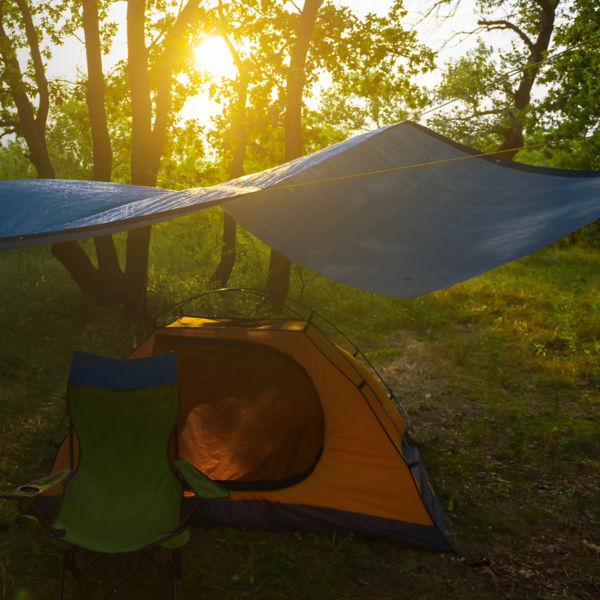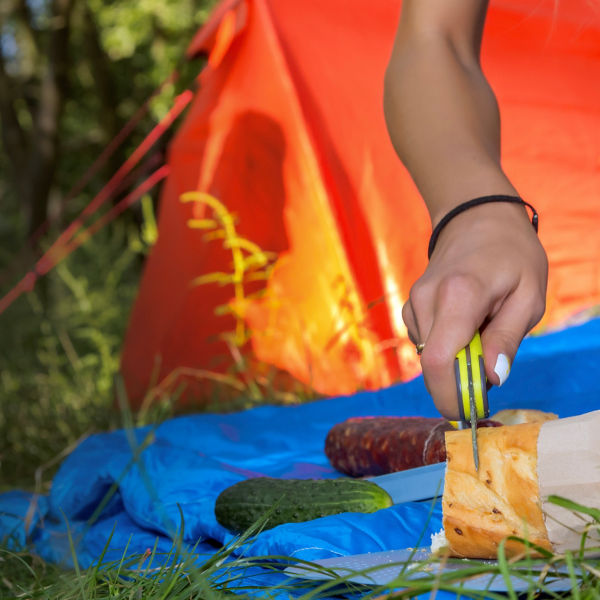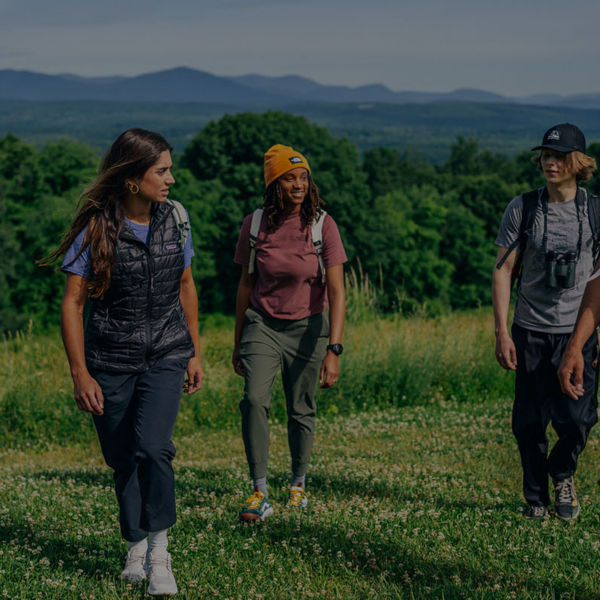
Camping is meant to be fun, offering a break from the normal pace of life. But camping on public lands also means it’s a common ground for other people, too. So if you step too far outside your own experience and begin impeding that of others, the great outdoors can take a turn for the worse, especially when introducing noisy music, scraps of litter, or buzzing drones to the mix. Small courtesies go a long way in ensuring everyone at a campground enjoys their time in nature, even if you’re sharing picnic tables and restrooms. Keep adjacent sites in mind when it comes to your music, late-night fireside chats, photography equipment, or even your grilling smells—it all becomes part of the environment, and how other campers are experiencing it. Bring a smile and pass it on.
DO: Introduce yourself to your neighbor
A simple “Howdy!” will do. No need to make new best friends off the bat, but a neighborly greeting will let anyone in your orbit know you’re friendly and can prevent any surprise “I didn’t see you there!” encounters later on.
DON’T: Play king or queen of the campground
Everyone at camp is a visitor of equal standing. While many campgrounds operate on a first-come, first-served basis in terms of who gets what site, that hierarchy system ends once a site is claimed. Be kind to your neighbors and offer to lend a hand if you see someone in need, but don’t cut through people’s campsites or enter without an invitation. If you’re rolling in late at night, don’t steamroll through the campground; always drive with caution and dim your headlights.
DO: Live by LNT principles
Think of yourself as a human ambassador to wildlife in the outdoors. No matter where you’re camping, be a good steward. That means treating the campground infrastructure, any animals that visit the area, plus the surrounding flora with respect. Look but don’t touch—leave only footprints, take only memories, and don’t feed the wildlife. If you’re camping in dispersed locations, be sure to choose a site that doesn’t worsen erosion. And when you leave, pack absolutely everything out with you, which includes all your trash: Don’t leave litter or food scraps in your firepit, as a campfire cannot get hot enough to burn it away.
DO: Embrace differences
Don’t patronize others for recreating in a way that might look different than what you have experienced or are expecting. People like to enjoy the outdoors in their own, personal ways. Too, don’t belittle people for “beginner” gear or making do with what they’ve got—remember everyone had to start somewhere.
DON’T: Destroy vegetation to get the “best spot” or “best shot”
If a campground’s sites or parking lot is full, don’t pull into a non-designated camping or parking area and risk running over vegetation. Pitch your tent only in designated tent sites to help protect the high-use areas and keep them in quality condition for future guests. Likewise, when it comes to photos, don’t trample vegetation trying to get the “best shot”—get creative and work with what’s available to you on-trail or on-site.
DO: Buy wood locally
If fires are allowed, purchase the firewood on-site (campground hosts often have bundles for sale) or stop at a local grocery store or roadside stand en route to your site. You don’t want to introduce foreign wood to a campsite, as it might contain harmful pests or other pollutants that can hurt (and sometimes devastate) the local ecosystem.
